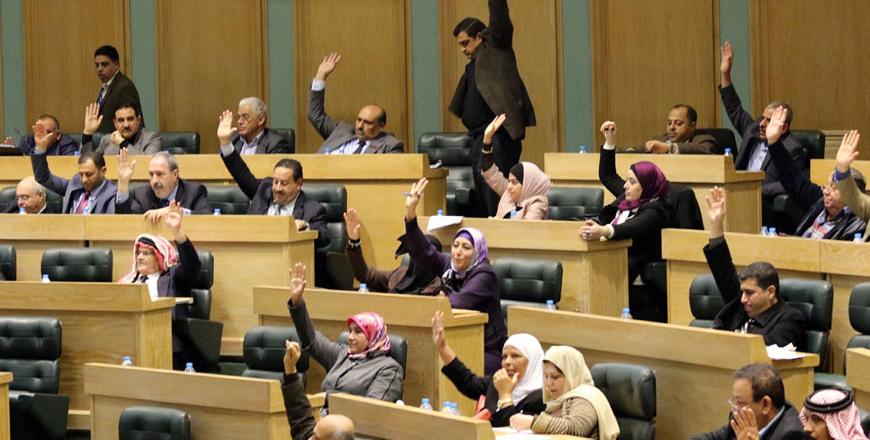You are here
More work needed to involve young people in partisan life — politicians
By Dana Al Emam - Sep 07,2015 - Last updated at Sep 07,2015
AMMAN — Despite its several advantages, the proposed draft elections law may negatively affect the political participation of young Jordanians, politicians said Monday.
The proposed “wording” of the bill will result in a single winner in each of the multi-member lists, according to Jerash Deputy Wafaa Bani Mustafa, who argued that candidates of the younger generation are less likely to win through this method while competing with older candidates with wider networks.
The new law is based on the at-large voting system in which all candidates can run for parliamentary elections on one large multi-member ticket.
Under Article 9 of the bill, eligible voters will have a number of votes equal to the number of seats allocated for their district in the Lower House.
During the elections, each eligible voter has to vote for a multi-member list as a whole and for individual candidates within the same ticket.
Although the bill links financial incentives for political parties with the percentages of young and female members, the lack of an internal democratic structure in the majority of parties hinders their chance to obtain leadership roles, Bani Mustafa said.
“The role of young people in the electoral process at this stage is limited to them being voters, not candidates and leaders,” she argued at the fourth coordination meeting of a project on democratic reform.
For his part, Saleh Irsheidat, secretary general of the National Current Party, said removing the one-person, one-vote system in the draft law was “a step in the right direction”.
However, removing the national-list will weaken the presence of political parties, and thus the participation of young people in areas dominated by tribal loyalties, he argued
Under the 2012 law, on the basis of which the 2013 parliamentary elections were held, each voter was given two votes: one for a candidate at the district level and another for a closed proportional list that competed for 27 seats at the national level.
Nonetheless, political party activism needs to be further instilled to combat the mentality of the 32-year-long martial-law era, which still persists even among young Jordanians who hear stories from their parents and grandparents about the time when partisan activity was banned and criminalised by law, the former minister said.
He noted that the young generation is more interested in working with some of the 4,000 civil society and non-governmental organisations with elected boards, highlighting the need for political parties to benefit from the potential of young people although it has so far “failed” to do so.
General Manager of the National Youth and Sports Fund Abdul Rahman Armouti said the fund’s strategy, which was formed based on opinions of some 90,000 young Jordanians, found that the main concerns of young Jordanians were information technology and political participation in 2005.
However, their major concerns at present are governance and anti-graft efforts as well as political participation, he said, a matter that reflects an “advanced” level of awareness.
Meanwhile, the director of the political affairs department at the Ministry of Political and Parliamentary Affairs, Ali Khawaldeh, said the significance of engaging young people in political life is due to their large number in Jordan and their ability to learn and adapt to change.
Around 30 per cent of Jordanians are between 18 and 25.
Khawaldeh attributed young people’s modest political participation to the fact that they have more pressing economic challenges to deal with, arguing that the martial law mentality is not an issue as partisan activity continued “in secret” at Jordanian universities during that period.
Furthermore, loyalty to the tribe and region seem to be stronger than loyalty to any political agenda, he said.
The discussion was part of the “Towards a Multi-Party Democracy: Strengthening the Role of Political Parties in Jordan’s Democratic Reform Process” project, co-funded by the EU and implemented by Al Quds Centre for Political Studies, the Konrad Adenauer Stiftung and the Jordanian Centre for Civic Education Studies.
Related Articles
AMMAN — Women’s groups on Tuesday said they had hoped the 2015 draft elections law would have included a 20 per cent quota for women.On Mond
AMMAN — The Lower House on Tuesday passed the draft 2015 parliamentary elections law with minor changes following six marathon sessions that
AMMAN — Women wishing to run in the coming parliamentary elections will have a chance to engage in a comprehensive training package that tar
















